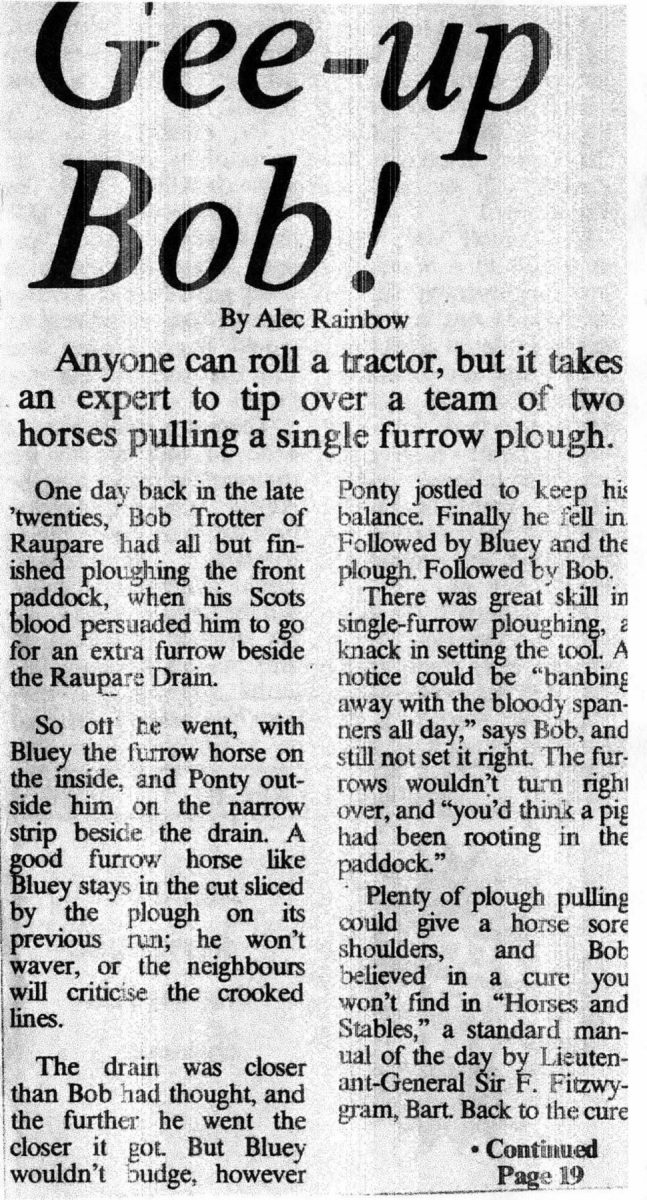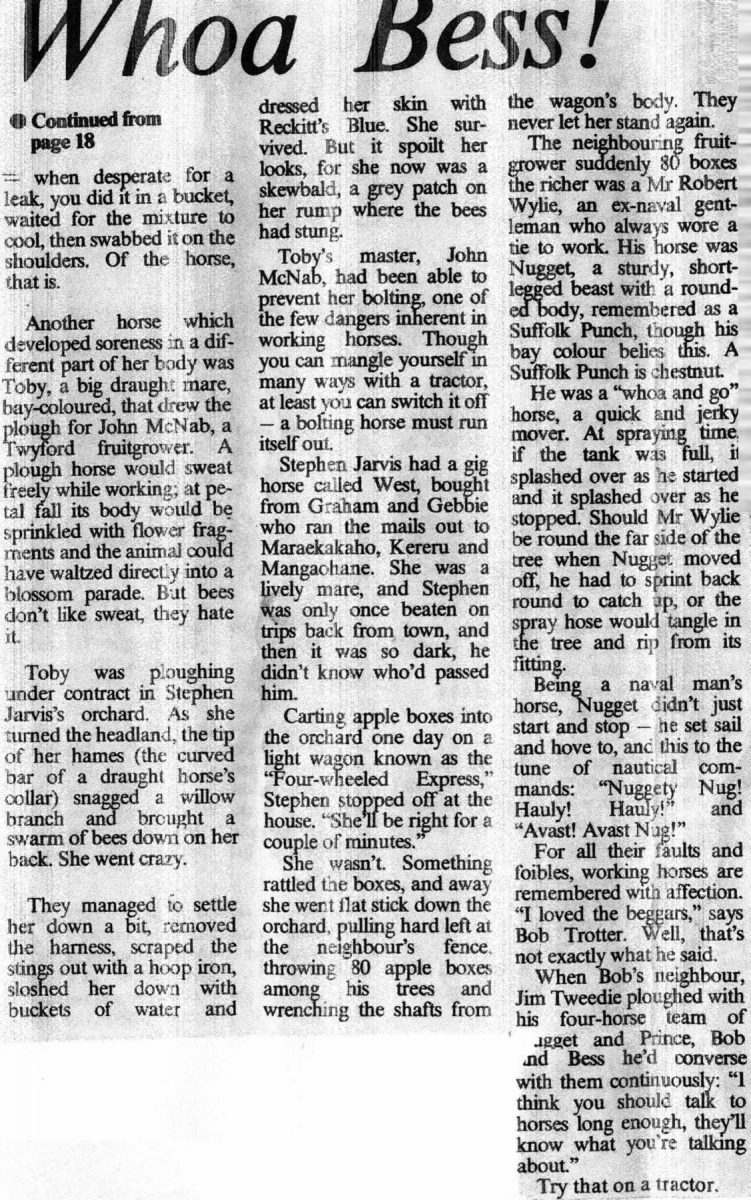Whoa Bess!
Continued from page 18
– when desperate for a leak, you did it in a bucket to cool, then swabbed it on the shoulders. Of the horse, this is.
Another horse which developed soreness in a different part of her body was Toby, a big draught mare, bay coloured, that drew the plough for John McNab, a Twyford fruitgrower. A plough horse would sweat freely while working: at petal fall its body would be sprinkled with flower fragments and the animal could have waltzed directly into a blossom festival. But bees don’t like sweat, they hate it.
Toby was ploughing under contract in Stephen Jarvis’s orchard. As she turned the headland, the tip of her hames (the curved bar of a draught horse’s collar) snagged a willow branch and brought a swarm of bees down on her back. She went crazy.
They managed to settle her down a bit, removed the harness, scraped the stings out with a hoop iron, sloshed her down with buckets of water and dressed her skin with Reckitt’s Blue. She survived. But it spoilt her looks, for she now has a skewbald, a grey patch on her rump where the bees had stung.
Toby’s master, John McNab, had been able to prevent her bolting, one of the few dangers inherent in working horses. Though you can mangle yourself in many ways with a tractor, at least you can switch it off – a bolting horse must run itself out.
Stephen Jarvis had a gig horse called West, bought from Graham and Gebbie who ran the mails out to Maraekakaho, Kereru and Mangaohane. She was a lively mare, and Stephen was only once beaten on trips back from town, and then it was so dark, he didn’t know who passed him.
Carting apple boxes into the orchard one day on a light wagon known as the “Four-wheeled Express”, Stephen stopped off at the house. “She’ll be right for a couple of minutes.”
She wasn’t. Something rattled the boxes, and away she went flat stick down the orchard pulling hard left at the neighbour’s fence, throwing 80 apple boxes among his trees and wrenching the shafts from the wgon’s body. They never let her stand again.
The neighbouring fruit grower suddenly 80 boxes the richer was a Mr Robert Wylie, an ex-naval gentleman who always wore a tie to work. His horse was Nugget, a sturdy, short-legged beast with a rounded body, remembered as a Suffolk Punch, though his bay colour belies this. A Suffolk Punch is a chestnut.
He was a “whoa and go” horse, a quick and jerky mover. At spraying time, if the tank was full it splashed over as he started and it splashed over as he stopped. Should Mr Wylie be around the far side, when Nugget moved off, he had to sprint back round to catch up, or the spray horse would tangle in the tree and rip from its fitting.
Being a naval man’s horse, Nugget didn’t just start and stop – he set sail and hove to, and this to the tune of nautical commands: “Nuggety Nug! Hauly! Hauly!” and “Avast! Avast Nug!”
For all their faults and foibles, working horses are remembered with affection. “I loved the beggars,” says Bob Trotter. Well. that’s not exactly what he said.
When Bob’s neighbour, Jim Tweedie ploughed with his four-horse team of Nugget and Prince, Bob and Bess, he’d converse with them continuously: “I think you should talk to horses long enough, they know what you’re talking about.”
Try that on a tractor.













Do you know something about this record?
Please note we cannot verify the accuracy of any information posted by the community.